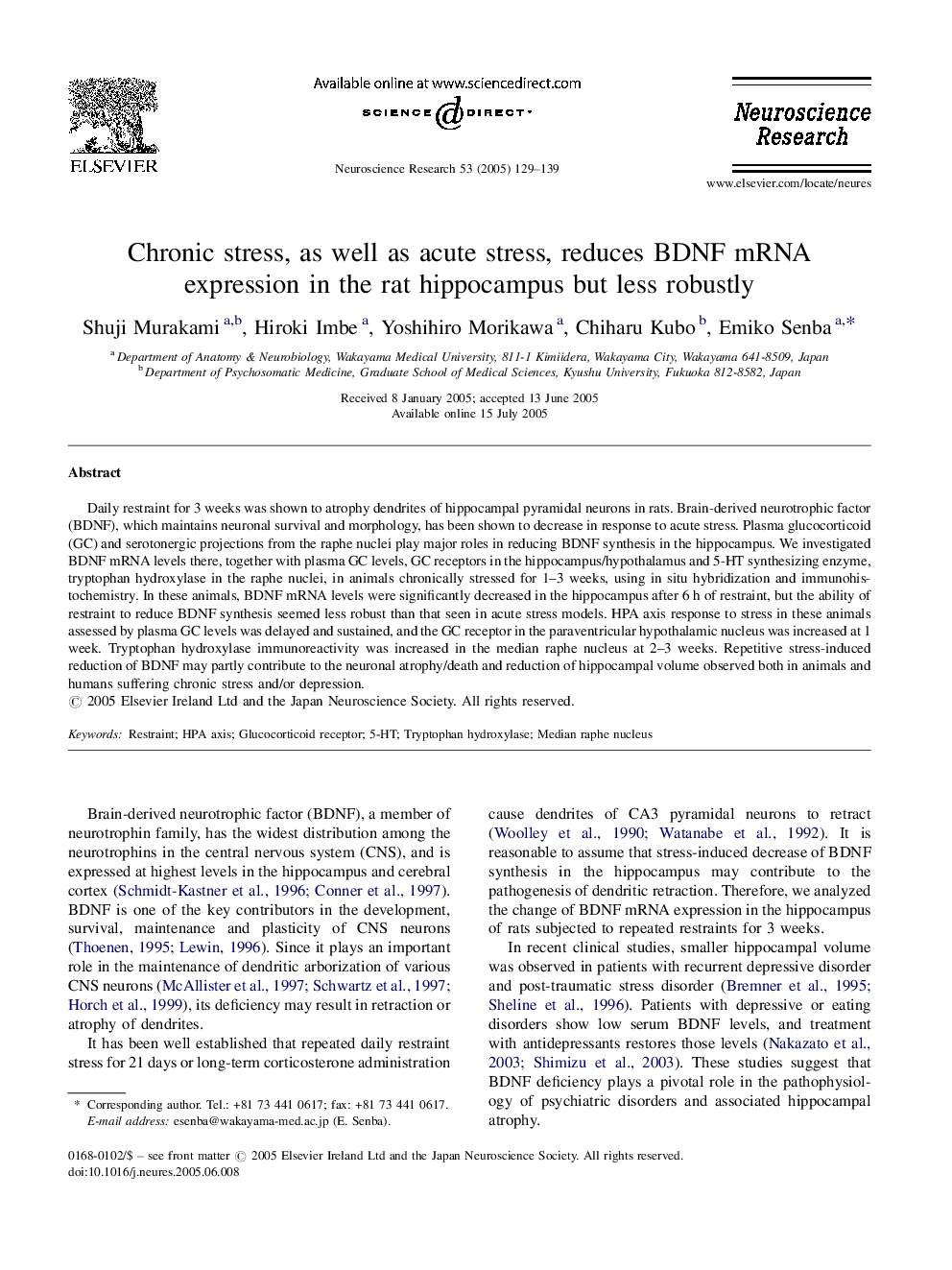| کد مقاله | کد نشریه | سال انتشار | مقاله انگلیسی | نسخه تمام متن |
|---|---|---|---|---|
| 9434348 | 1298143 | 2005 | 11 صفحه PDF | دانلود رایگان |
عنوان انگلیسی مقاله ISI
Chronic stress, as well as acute stress, reduces BDNF mRNA expression in the rat hippocampus but less robustly
دانلود مقاله + سفارش ترجمه
دانلود مقاله ISI انگلیسی
رایگان برای ایرانیان
کلمات کلیدی
موضوعات مرتبط
علوم زیستی و بیوفناوری
علم عصب شناسی
علوم اعصاب (عمومی)
پیش نمایش صفحه اول مقاله

چکیده انگلیسی
Daily restraint for 3 weeks was shown to atrophy dendrites of hippocampal pyramidal neurons in rats. Brain-derived neurotrophic factor (BDNF), which maintains neuronal survival and morphology, has been shown to decrease in response to acute stress. Plasma glucocorticoid (GC) and serotonergic projections from the raphe nuclei play major roles in reducing BDNF synthesis in the hippocampus. We investigated BDNF mRNA levels there, together with plasma GC levels, GC receptors in the hippocampus/hypothalamus and 5-HT synthesizing enzyme, tryptophan hydroxylase in the raphe nuclei, in animals chronically stressed for 1-3 weeks, using in situ hybridization and immunohistochemistry. In these animals, BDNF mRNA levels were significantly decreased in the hippocampus after 6Â h of restraint, but the ability of restraint to reduce BDNF synthesis seemed less robust than that seen in acute stress models. HPA axis response to stress in these animals assessed by plasma GC levels was delayed and sustained, and the GC receptor in the paraventricular hypothalamic nucleus was increased at 1 week. Tryptophan hydroxylase immunoreactivity was increased in the median raphe nucleus at 2-3 weeks. Repetitive stress-induced reduction of BDNF may partly contribute to the neuronal atrophy/death and reduction of hippocampal volume observed both in animals and humans suffering chronic stress and/or depression.
ناشر
Database: Elsevier - ScienceDirect (ساینس دایرکت)
Journal: Neuroscience Research - Volume 53, Issue 2, October 2005, Pages 129-139
Journal: Neuroscience Research - Volume 53, Issue 2, October 2005, Pages 129-139
نویسندگان
Shuji Murakami, Hiroki Imbe, Yoshihiro Morikawa, Chiharu Kubo, Emiko Senba,